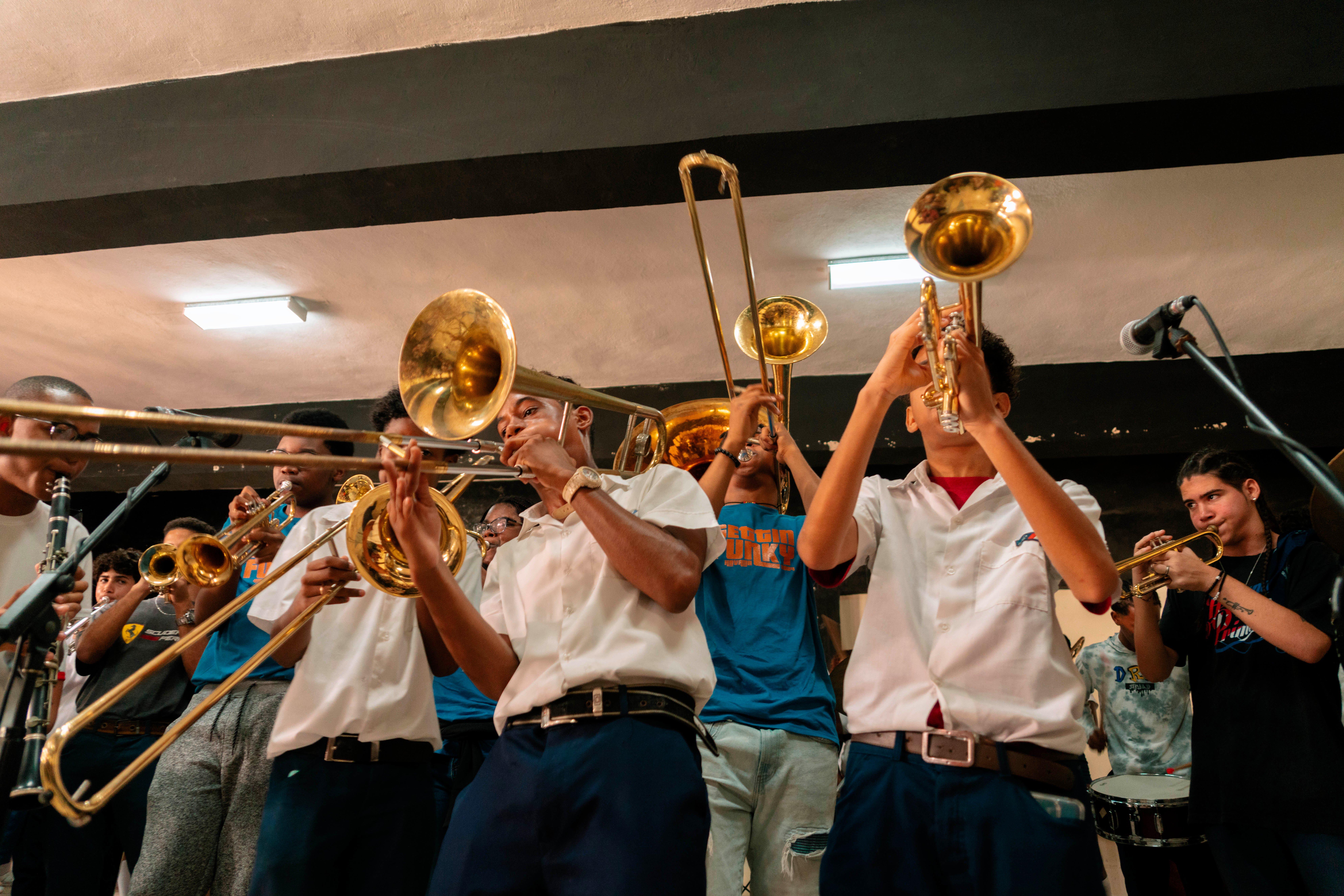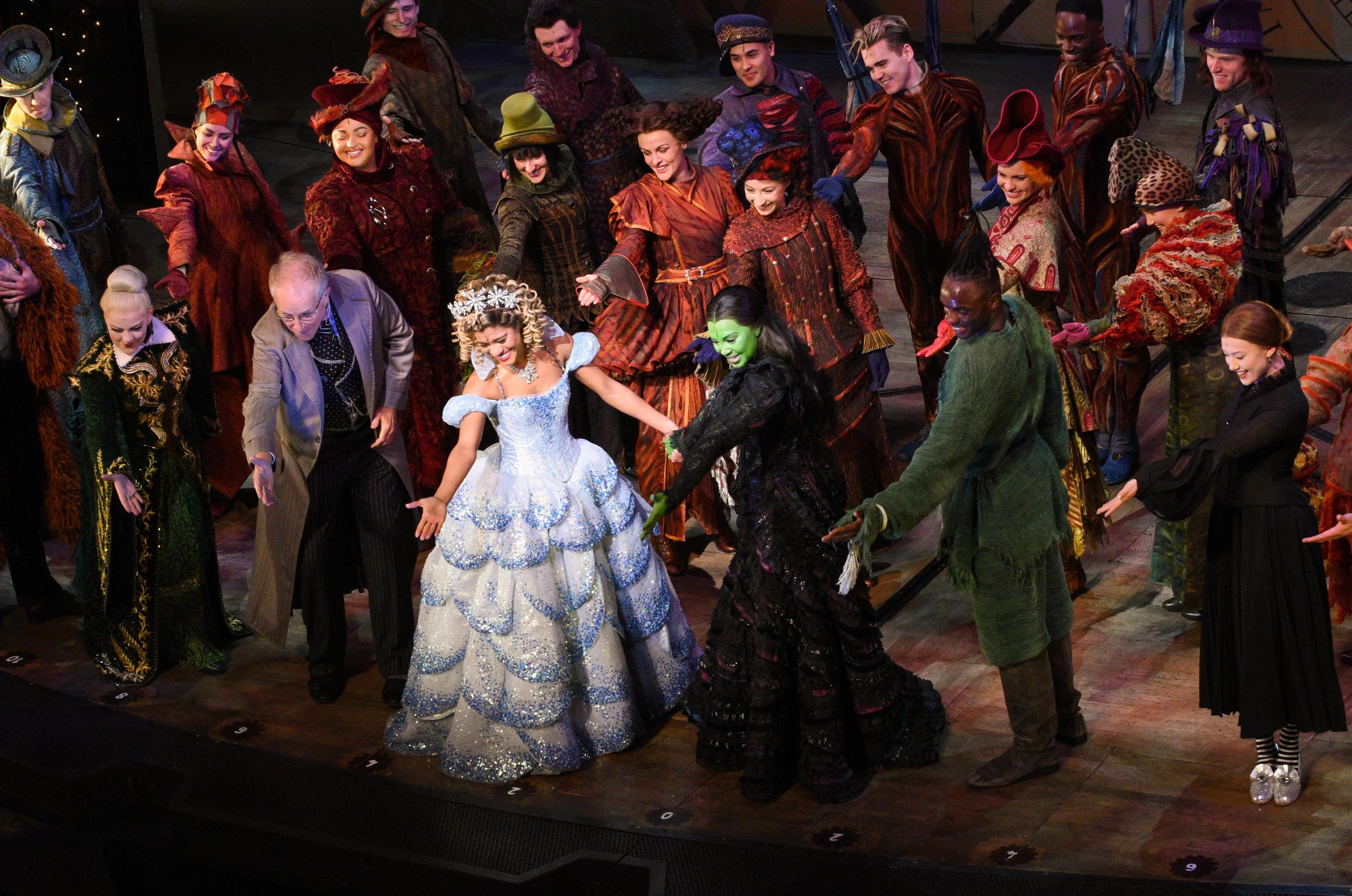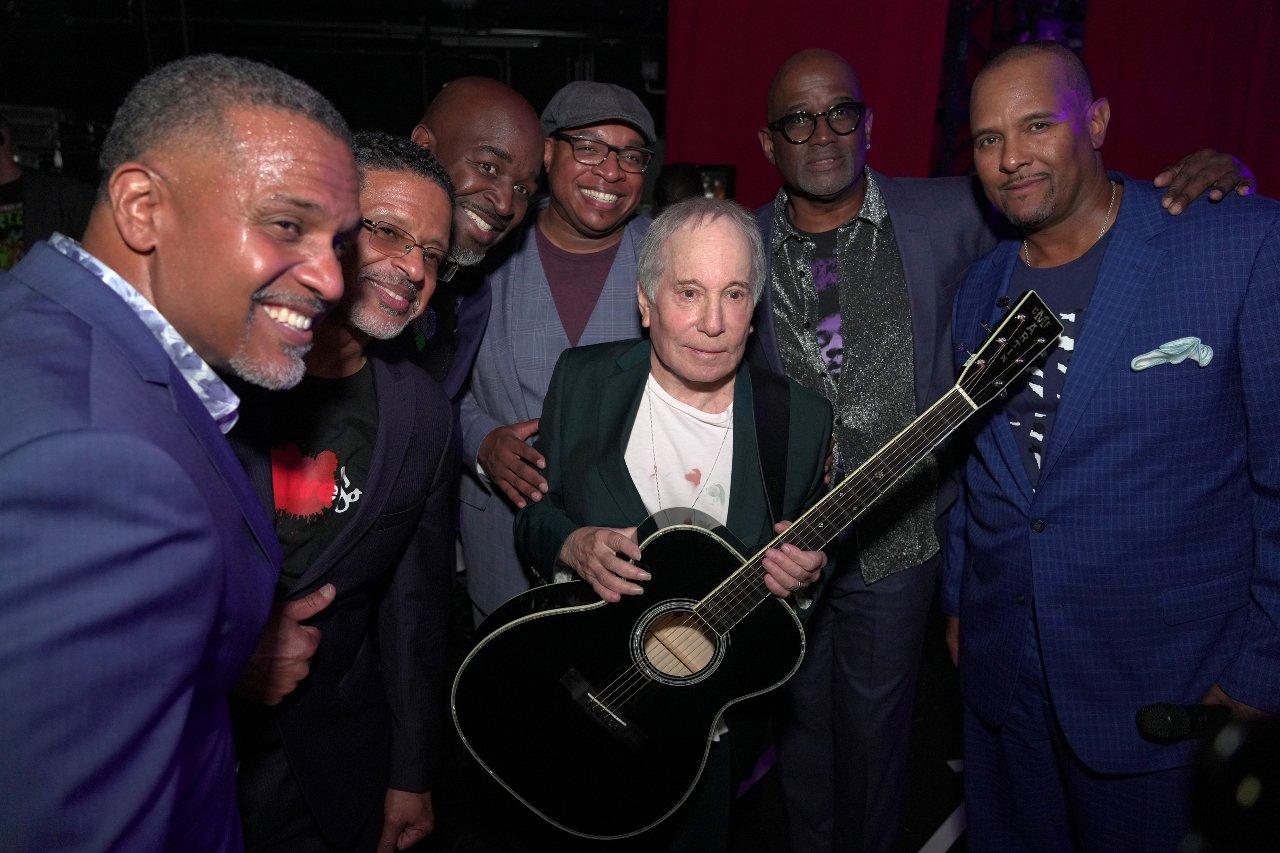It’s sweltering inside the Guillermo Tomas Music Conservatory, a primary school in Havana’s Guanabacoa neighborhood, where American visitors enjoy what will likely be the best school recital they'll ever see.
A series of teen and tween musicians — some in trios and quartets, others in larger ensembles — are playing a mix of Latin jazz, orchestral overtures and even a rousing rendition of the Ghostbusters theme. During an interpolation of Aretha Franklin's "Think," three young horn players burst to the front of the group in a competitive but friendly battle of brass.
The performance is the centerpiece of Getting Funky in Havana, a four-day music and cultural exchange program developed by GRAMMY-nominated Cuban funk artist Cimafunk, GRAMMY-winning New Orleans multi-instrumentalist Trombone Shorty's namesake foundation, and Cuba Educational Travel. Now in its third year, Getting Funky brought nearly 200 American music lovers, artists and students to Havana in January to explore the deep connections between Cuban and New Orlenian sounds through a series of performances, educational activities and panels.
"Cuba and New Orleans have a long line of influence, and we have special things that happen in both places that people can hear through our music," Trombone Shorty, born Troy Andrews, tells GRAMMY.com. "Passing along music and knowledge is…how the music's staying alive. I always try to tell the kids, learn everything that came before you, but also be very innovative."
While there are many conservatories in Havana, Guillermo Tomas was chosen in part for its similarities to New Orleans' Treme neighborhood, where many of the Trombone Shorty Foundation students live. Guanabacoa is "probably the deepest Afro-Cuban cultural neighborhood" in Havana, says Foundation Executive Director Bill Taylor.
Those shared roots and experiences were on display during several capstone concerts, which were also open to Havana residents. At a massive outdoor concert blocks away from Havana's famous Malecón, Getting Funky attendees enjoyed performances from Cuban salsa legends Los Van Van, reparto star Wampi and Shorty's Orleans Avenue. At a pinnacle performance the day before, more than 30 artists gathered at Havana arts hub La Fabrica for a sold-out international jam. Shorty, Big Freedia, Ivan Neville, percussionist Pedrito Martinez, PJ Morton, Tarriona "Tank" Ball, drummer Yissy Garcia and others joined forces with Cuban artists Reina y Real and X Alfonzo to create an unceasing groove.
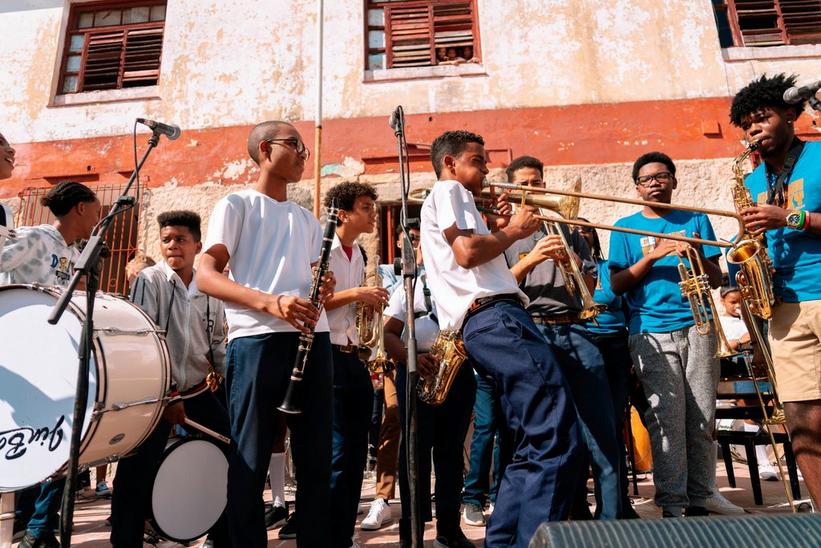
Cuban and American students perform outside Guillermo Tomas┃Eduardo Reyes Aranzaez
While the concerts certainly brought the energy to a fever pitch, the beating heart of Getting Funky is its mission of music education. Ten members of the Trombone Shorty Foundation's brass band traveled to Cuba, where they performed at Getting Funky's opening night party and several other events. Throughout the week, the New Orleans students shared stages with their Cuban counterparts, learning each others' musical idioms and finding common ground.
"So much of the music [we hear in New Orleans comes] from Africa through the Caribbean to New Orleans, then spreading throughout the United States. When our students connect with those [Cuban] students, there's a natural, symbiotic connection that takes place," Taylor says.
High school senior and sax player Dylan Racine called the trip — his first time out of the country — a life-changing experience. "I learned so many new skills on this trip, including how to network, how to collaborate with young people from a different culture than me, and more," he says via email. Drummer and pianist John Rhodes, another senior, added that the experience was invaluable.
"I was able to interact with another culture and understand other young people through music. Although we couldn't speak the same language, we understood each other musically," he writes.
Both Cuba and New Orleans' unique musical cultures require constant innovation to survive, Taylor adds. "You honor the past, but it needs an infusion of new life in order to thrive. Getting Cuban musicians together with New Orleans musicians infuses a shot of energy into both of those musical styles."
The trip also put students from both countries in contact with working musicians, whose own perspectives were expanded by the experience.
"Music education and pedagogical expertise is so important. We need the next level to come up and be dope, just like we are," says trumpeter Keyon Harrold, whose work has taken him from sessions with Beyoncé to the 2024 GRAMMYs. This was Harrold’s second year at Getting Funky. "It's even more visceral and engaging to actually see these kids at the age of 10, 11, 12, and to know that in five years they're going to be the next."
For many of the musicians who attended, Getting Funky was an inspirational experience that furthered their existing work as well. "I perform for a living, but performing and playing with [students] is super dope. [Their energy is] clean," says GRAMMY-winning producer, rapper and mentor Deezle. "If I can in any way help to guide their path away from the pitfalls that I've encountered and endured, I would love to do that."
Legendary singer/songwriter Ivan Neville said he was blown away while watching young musicians from different worlds performing together. "This music was making their souls feel so good. I know music is good for the soul, but it was another level that I saw."
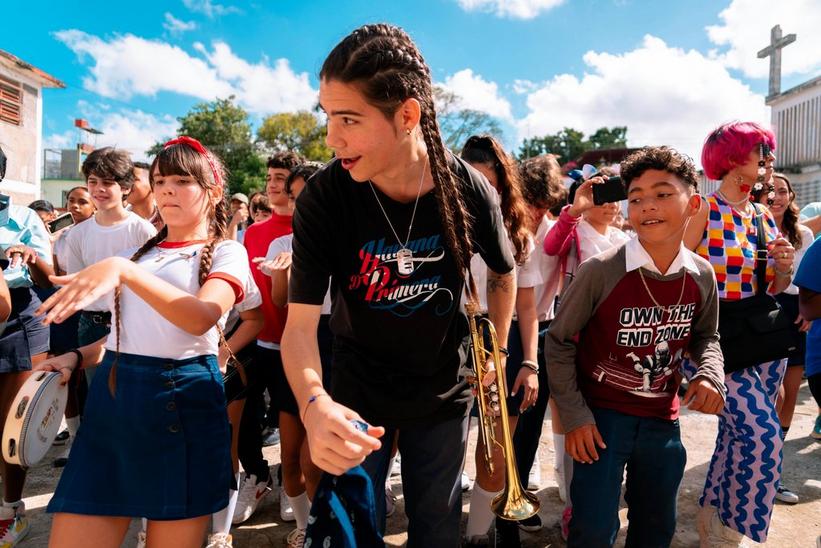
Fabio Daniel (center) and members of Primera Linea, or "first line"┃Eduardo Reyes Aranzaez
Since Getting Funky In Havana was established in 2020, the program has had a measurable impact on Cuban students' lives. In 2023, several young Cuban musicians traveled to New Orleans during JazzFest, where they visited Shorty’s studio and performed together at legendary venue Tipitina's. When the group returned home, they formed their own brass band, Primera Linea.
"This band is working; they are playing many places in Havana and that's thanks to the project. They were so into the satisfaction of [feeling] that they are valued," says Erik Alejandro Iglesias Rodríguez, who records as Cimafunk. "They are learning good quality things in terms of human relationships and in terms of music. [The program is] something that changes their mentality and lets them know that they can make it."
While Cuba harbors an incredible amount of musical talent, "making it" as a musician in the country comes with a unique set of challenges. The country's shrinking economy, high rate of inflation and low monthly incomes have 62 percent of Cubans reporting that they "struggle to survive" financially, according to a 2023 survey. Purchasing a professional calibur instrument, which may cost hundreds or thousands of U.S. dollars, often comes with great sacrifice.
It's an emotional day back at the Guillermo Tomas, where 10 of the school's top students will be awarded an instrument.
"An instrument is not something you can buy in a store," says Amanda Colina González, an art historian and one of the trip guides, who studied saxophone in conservatory. Colina González, like the majority of students, was given an instrument to play for the duration of her studies but had to return it to her school upon graduation. Remembering that moment brought tears to her eyes.
Because of its high cost and the possibility of leading to international travel, owning their own instrument can truly change a young musician's life. Getting Funky has donated approximately 50 instruments to Cuban students over three years of programming.
Fifteen-year-old Daniela Hernandez was awarded a trombone for her skill and dedication to music outside of school. Harried and teary-eyed after the recital, she shared her happiness and pride for being able to play with musicians who she's long admired. She plans to use her new trombone to study and will "take it with me everywhere."
Daniela and classmate Fabio Daniel (who received a trumpet during the first edition of Getting Funky in Havana in 2020) joined Trombone Shorty onstage at Getting Funky, performing for more than 15,000 people. Several of their friends and classmates brought their instruments to the concert — the largest held in Cuba in the last four years — and played back at the band from the crowd.
"Cuban musicians really enjoy playing and making other people feel joy through music,” Daniela says. Fellow trombone player and awardee Cristian Onel León says it's important to play for people outside of Cuba, and enjoys teaching people about his country's rhythms and keys. "I’m [also] learning other forms of playing, that aren’t mine. And it feels good,” he adds.
The program's instrument donation is spearheaded by the long-running nonprofit Horns To Havana, and supported by the Gia Maione Prima Foundation and private donors. Tickets purchased to attend the program also fund its efforts; Taylor says 2024's Getting Funky raised approximately $50,000. The Trombone Shorty Foundation hopes to continue the annual event, and expand into different countries; a 2025 Havana trip is already in the works.
For Rodríguez, who recently moved to New Orleans, the effect of this musical exchange is tangible. He's noticed more musicians who are open to collaborating across borders, and is working on new music with artists who have attended Getting Funky in previous years.
"Just jamming changes everything," he says. "That changes the minds of people; that changes the sound."
The connections made during Getting Funky have led to a variety of opportunities for students on both sides of the Gulf of Mexico. Foundation alto saxophonist Jacob Jones credits the trip for broadening his way of thinking while playing music; Deezle says he wants to get Cuban trumpeter and bandleader Fabio Daniel on a track; Primera Linea may perform at San Francisco's Outside Lands festival in August.
"To be able to facilitate that, and give to these young musicians of Cuba, is unbelievable," Andrews says of the program. "It's just a blessing to be able to be a blessing and help out the next generation, and help those musicians see a brighter future."
Venezuelan Immigrant Musicians In The U.S. Carry Sound, Sentiment & Love For The Country They Left Behind

